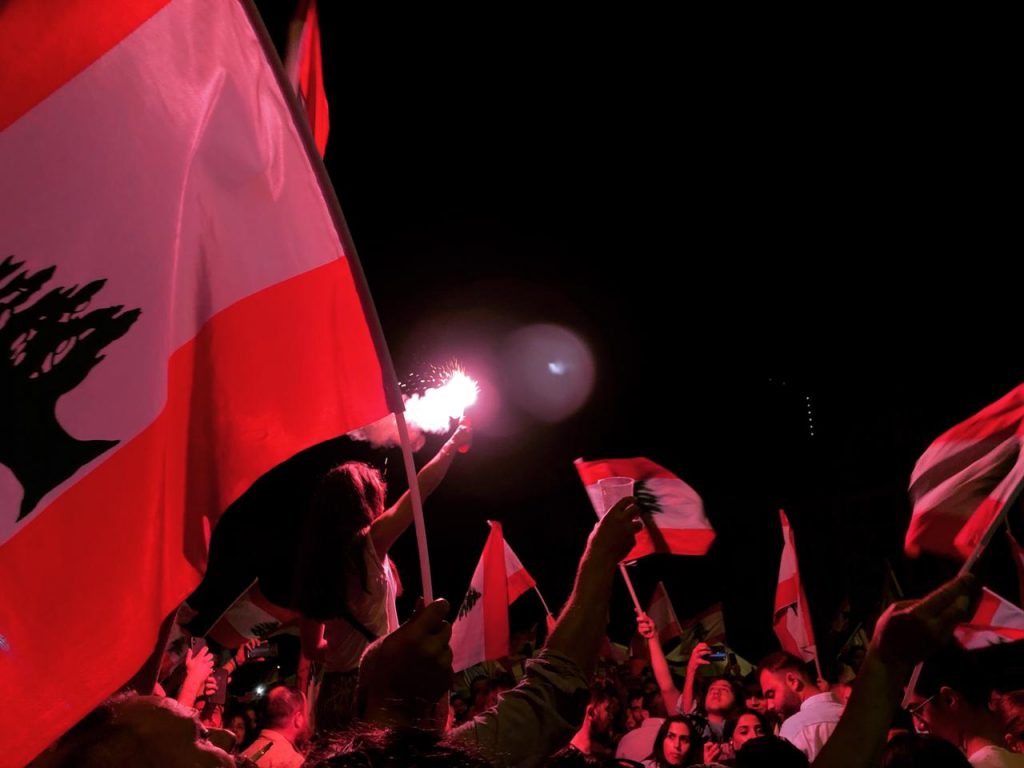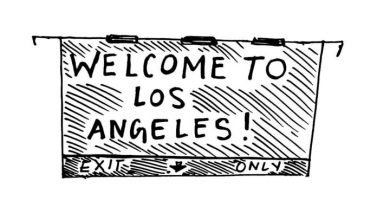Insurgency Calls: The Revolt in Lebanon

Beirut, photographed by Jessica Wahab under CC Attribution-ShareAlike 4.0 International License.
For over a month, the streets of Lebanon have beheld the power of insurgence, driven by its people for the betterment of the nation.
On October 17, small-scale demonstrations began to materialize over government proposals for new taxes, including a monthly six dollar tax on WhatsApp calls. This announcement sparked disdain toward the Lebanese government which spread from the capital city of Beirut to dozens of towns and cities throughout the nation. Thus, a protest combating a single action of the government quickly materialized into a country-wide demonstration against ongoing governmental corruption and exploitation. That same evening, the government revoked proposals for such taxes.
Despite the government’s revocation of new tax proposals, demonstrations did not cease. Instead, they multiplied in size, increasing from hundreds of participants to hundreds of thousands of participants throughout the country. People of all ages, races, genders, and religions took to the streets calling for the “fall of the regime.”
Universities and schools shut their doors as students joined protests. Students organized sit-ins and roadblocks to gain attention. Nightclubs and other popular establishments closed their doors in support of the ongoing protests. DJs took to the streets to perform in front of crowds of protesters in revolutionary spirit. Restaurants and food trucks welcomed protesters. The environment remained welcoming, safe, and hopeful.
On October 22, Prime Minister Saad Hariri met with ambassadors and representatives from the United States, France, the United Kingdom, Germany, Italy, Russia, the European Union, China, and the United Nations to discuss the protests in Lebanon. Exactly a week later, on October 29, Hariri resigned from his post.
A looming animosity towards the Lebanese government is the result of repeated instances in which the government has been unable to attend to the basic needs of its people. The country does not guarantee 24 hours of electricity, with many areas only receiving eight-hour rations per day. The sanitation system is ill-planned, as many landfills remain congested and trash pollutes the nation’s shorelines. In September, when wildfires tarnished much of Lebanon’s national forests, the government was unable to provide a sufficient number of firefighters or organize adequate aid. Additionally, the country has remained economically fragile. Income inequality is prevalent, as only 3000/6.1 million (0.04%) earns 10% of the national income.
Though the government has responded with stern security measures and military action, protesters remained somewhat peaceful until the evening of November 12. Druze Progressive Socialist Party member, Alaa Abou Fakhr, was shot in front of his wife and child by a military officer in the midst of a protest in Khalde. His death, the first at the hands of the military sparked a wave of anger and frustration as the Lebanese Amnesty International called his death “a human rights violation that should be investigated by civilian and not military prosecutors.” President Michel Aoun responded by warning protesters to go home.
On November 22, Lebanon ushered in its 76th year of independence from French Mandate with two distinct celebrations. The people celebrated with a march in the capital city of Beirut whereas members of the political elite celebrated independence at an exclusive military parade just outside of the city. Nothing could be more symbolic of the stark divide which plagues the country. Members of the Lebanese Diaspora organized their own respective protests in solidarity.
The phrase “all of them means of all of them” embodies the collective demand for the resignation of those individuals who make up the corrupt oligarchy that rules over Lebanon. This list includes President Michel Aoun, Speaker of the Parliament Nabih Berri, Minister of Foreign Affairs and Emigrants Gebran Bassil, whom all remain in power.
According to an analysis by Amnesty International and the Issam Fares Institute for Public Policy and Intdernational Affairs at the American University of Beirut, key demands include, but are not limited to: the end of government corruption, the end of a sectarian political system, the restoration of stolen funds as a measure to hold the corrupt accountable, and fair tax and financial procedures.
Resistance continues as the people remain unyielding in their call for economic and political revolution. Normal life no longer remains on hold, but the routine of the nation now resumes in tandem with demonstration, protest, and an outcry for change.




